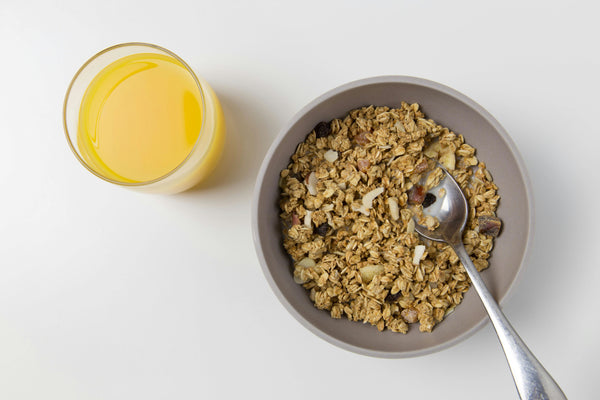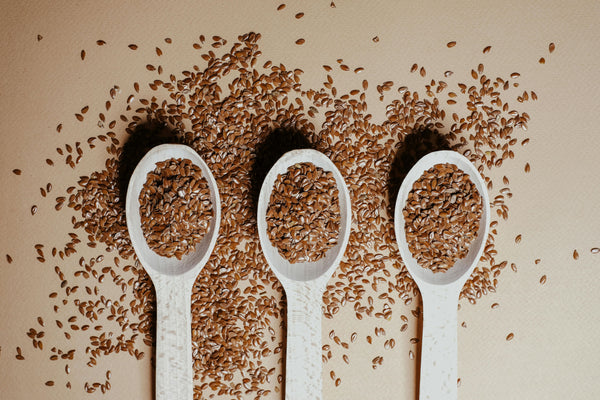Prebiotics have been gaining popularity in the health and wellness world for their potential to promote gut health and improve digestion. But do prebiotics actually make you poop? Explore the relationship between prebiotics and constipation and discuss how incorporating these dietary fibers into your diet could help alleviate symptoms of sluggish digestion. From increasing the production of beneficial bacteria in the gut to promoting regular bowel movements, prebiotics may hold the key to finding relief from constipation.
What are Prebiotics?
Prebiotics are a type of dietary fiber found in certain foods that serve as fuel for beneficial bacteria residing in the gut. These fibers, including oligosaccharides (XOS, GOS), fructooligosaccharides (FOS), and inulin, are resistant to digestion in the stomach and small intestine. Instead, they travel intact to the colon, where they undergo fermentation by gut bacteria. The fermentation process breaks down prebiotic fibers into short-chain fatty acids (SCFAs), such as acetate, propionate, and butyrate. SCFAs are critical to maintaining gut health by providing energy for colon cells and exerting various beneficial effects on overall health.
By selectively nourishing beneficial bacteria like Bifidobacteria and Lactobacilli, prebiotics help rebalance the gut microbiome, promoting a healthier microbial community while inhibiting the growth of harmful bacteria. Consuming prebiotics through dietary sources has been linked to a range of health benefits, including improved digestive function, enhanced immune response, reduced inflammation, and better absorption of essential nutrients. Additionally, prebiotics may alleviate symptoms of gastrointestinal disorders such as constipation, irritable bowel syndrome (IBS), and inflammatory bowel disease (IBD).
In essence, prebiotics serve as essential food for the good bacteria in our gut, fostering a balanced and thriving microbial ecosystem that supports overall health and well-being.
Prebiotics Foods

Incorporating prebiotic-rich foods into your diet can provide the necessary fiber and nutrients to support digestive health and alleviate constipation. Here are some prebiotic foods you can include in your meals:
-
Whole Grains: Whole grains such as oats, barley, quinoa, and brown rice are rich in prebiotic fiber. They nurture the growth of beneficial bacteria in the gut, aiding in digestion and regular bowel movements.
-
Fruits: Many fruits contain soluble fiber and natural sugars that act as prebiotics. Include fruits like bananas, apples, berries, and citrus fruits in your diet to support a healthy gut microbiome and alleviate constipation.
-
Vegetables: A variety of vegetables are rich in prebiotic fibers that nourish beneficial gut bacteria. Incorporate vegetables like onions, garlic, leeks, asparagus, artichokes, and spinach into your meals to promote gut health and improve bowel regularity.
-
Legumes: Legumes such as chickpeas, lentils, beans, and peas are high in fiber and prebiotics. Adding legumes to your diet can help soften stool, increase bowel movements, and alleviate constipation.
-
Nuts and Seeds: Nuts and seeds like almonds, flaxseeds, chia seeds, and pumpkin seeds are packed with prebiotic fibers, healthy fats, and nutrients that support digestive health. Snack on a handful of nuts or sprinkle seeds onto salads and yogurt to boost your prebiotic intake.
Consider incorporating fermented foods like yogurt, kefir, kimchi, sauerkraut, and miso contain probiotics, which are beneficial bacteria that support gut health. While not prebiotics themselves, they can complement prebiotic-rich foods by providing a diverse range of beneficial bacteria to the gut.
Incorporating prebiotic-rich foods into your diet can help regulate bowel movements, alleviate constipation, and promote overall digestive wellness. Remember to gradually increase your intake of prebiotic-rich foods to allow your digestive system to adjust and avoid any discomfort.
Prebiotics vs. Probiotics
Prebiotics and probiotics are two terms that often get tossed around in discussions about gut health, but they actually play very different roles in the body. Unlike probiotics, which are live microorganisms, prebiotics themselves are not alive but rather are non-digestible fibers that provide nourishment to the existing good bacteria in the digestive system. Think of prebiotics as the fertilizer for your gut garden, and probiotics as the seeds that help the garden flourish. While probiotics come from sources like yogurt, kefir, and fermented foods, prebiotics are found in foods like bananas, onions, and garlic. It's important to consume both probiotics and prebiotics in order to support a balanced and diverse gut microbiome.
Do Prebiotics Make You Poop?
The relationship between prebiotics and bowel movements is a topic of interest for many. Discover how prebiotics impact your digestive system and whether they can indeed help regulate your bowel movements.
Prebiotic Fibers Help Promote Bowel Movements
Prebiotic fibers play a crucial role in promoting bowel movements and alleviating constipation. Here's how they contribute to a healthy digestive system:
-
Increased Bulk: Prebiotic fibers can help add bulk to the stool, making it easier to pass through the digestive tract. By retaining water and forming soft, bulky stools, prebiotics help prevent constipation and promote regular bowel movements.
-
Stimulating Contractions: Certain prebiotic fibers stimulate the muscles in the colon, promoting peristalsis—the wave-like contractions that move stool through the intestines. This helps facilitate bowel movements and prevents stool from becoming stagnant in the colon.
-
Fostering Beneficial Bacteria: Prebiotics selectively nourish beneficial bacteria in the gut, such as Bifidobacteria and Lactobacilli. These beneficial bacteria produce short-chain fatty acids through fermentation, which promote colon health and stimulate bowel movements.
By incorporating prebiotic-rich foods into your diet, you can support a healthy gut microbiome and improve bowel regularity, ultimately aiding in more comfortable and consistent bowel movements.
Prebiotics Influence on the Gut Microbiome
The gut microbiome is a vast community of microorganisms housed in the digestive tract, playing a crucial role in various aspects of health, including digestion, immune function, and metabolism. Prebiotics exert a significant influence on the composition and diversity of the gut microbiome:
-
Promoting Diversity: Prebiotics support the growth and activity of diverse beneficial bacteria in the gut. By providing essential nutrients to these bacteria, prebiotics help maintain a balanced and diverse microbiome, which is crucial for optimal gut health.
-
Inhibiting Harmful Bacteria: Prebiotics discourages the growth of harmful bacteria. By selectively nourishing beneficial bacteria, prebiotics help crowd out pathogenic microbes, reducing the risk of gastrointestinal infections and inflammation.
-
Producing Short-Chain Fatty Acids: The fermentation of prebiotic fibers by gut bacteria produces short-chain fatty acids (SCFAs), such as acetate, propionate, and butyrate. SCFAs play a vital role in supporting colon health, regulating immune function, and maintaining the integrity of the gut barrier.
Overall, prebiotics contribute to a balanced and thriving gut microbiome, which is essential for digestive wellness, immune function, and overall health.
How to Take Prebiotic Supplements for Constipation

When dealing with chronic constipation, taking prebiotic supplements can be a helpful solution. These supplements contain fibers that help promote the growth of beneficial bacteria in the gut, ultimately improving digestion and regularity. To effectively take prebiotic supplements for constipation, it is important to start with a low dosage and gradually increase it to prevent any potential diarrhea or bloating.
Typical doses of xylooligosaccharides (XOS) and galactooligosaccharides (GOS) range around 1.5g and 1g, respectively. Inulin fiber, commonly derived from chicory root or agave, is typically consumed in doses of 2-3g. It is also essential to drink plenty of water throughout the day to aid in the digestion process and prevent dehydration. Additionally, it is recommended to consult with a healthcare professional before starting any new supplement regimen, especially if you suffer from chronic constipation. By following these guidelines, you can effectively use prebiotic supplements to address constipation and improve your overall digestive health.
In Conclusion
The role of prebiotics in your digestive health is to provide the necessary food for the good bacteria in your gut. While they can help promote regularity and improve overall gut health, it's important to note that prebiotics alone may not be enough to make you poop if you're constipated. However, when combined with probiotics, which are the actual good bacteria themselves, the two can work together synergistically to help regulate your bowel movements and improve digestion. So, to answer the question, "do prebiotics make you poop?" - yes. Prebiotics can also be more effective when used in combination with probiotics.